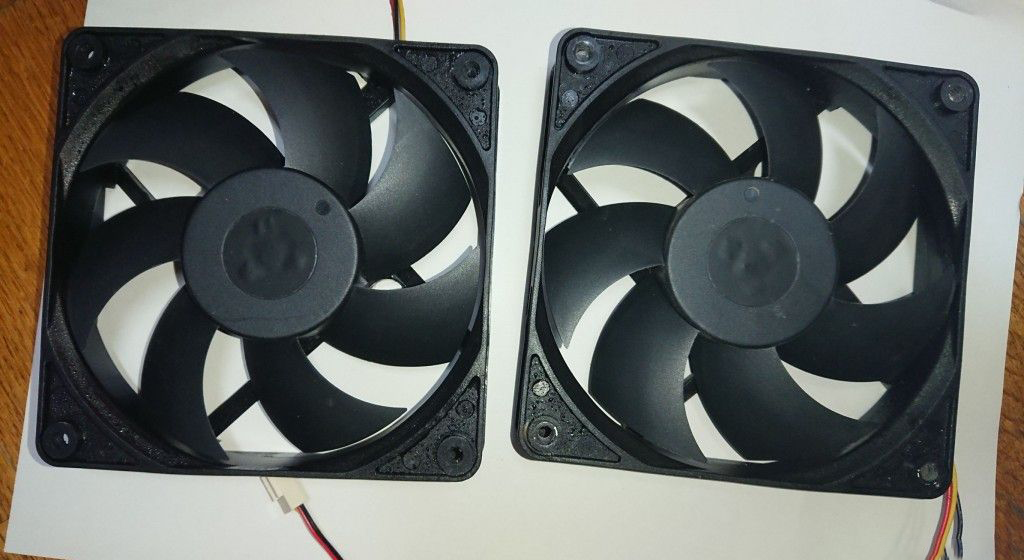Oil leakage in cooling fans during prolonged use can impact the normal operation of the equipment. While it typically does not directly affect the fan's functionality, it leads to resource wastage, increased maintenance costs, and a shortened lifespan of the equipment. Therefore, understanding the causes of oil leakage and performing regular inspections and maintenance is crucial. This article explores the common causes of oil leakage in cooling fans and provides professional solutions to help users prevent and address these issues effectively.

Main Causes of Oil Leakage in Cooling Fans
- Poor Seal at Oil Pipe ConnectionsA common cause of oil leakage in cooling fans is poor sealing at the oil pipe connections, especially at the bearing housing. The shaft seal, typically made of O-rings and frame seals, can wear out or degrade over time. Improper assembly during maintenance can also lead to seal failure, causing oil leakage. If not addressed promptly, this can worsen the oil leakage and affect the fan’s operation.Solution: Regularly inspect the shaft seal for wear or aging and replace it when necessary. Ensure that maintenance procedures strictly follow the manufacturer’s assembly guidelines to prevent improper installation.
- Excessive Lubricant Supply to Bearing HousingIn a cooling fan’s normal operation, the lubricant in the bearing housing should be maintained at appropriate pressure and flow levels. Typically, the oil pressure should be 0.3MPa, and the flow rate should slightly exceed 3L/min to ensure proper lubrication. If the oil supply is excessive, especially due to the high-speed rotation of the rotor or increased lubricant temperature, the actual oil level may exceed the design limits, causing leakage. Additionally, excessive pressure can stress the seals, worsening the oil leakage.Solution: Regularly check the lubricant supply system to ensure the pressure and flow meet the specified requirements. If over-supply is detected, adjust the throttling valve or replace faulty components in the lubricant system to ensure proper operation.
- Poor Quality of LubricantThe quality of the lubricant is critical to the normal operation of the cooling fan. Substandard lubricants can lead to several issues. For example, excess particles in the lubricant can cause wear on rubber seals, leading to seal failure, while moisture in the oil can result in corrosion and damage to components such as servo valves, further aggravating oil leakage. As lubricant quality directly affects fan performance and sealing capabilities, selecting high-quality lubricants and conducting regular oil quality checks is vital.Solution: Use lubricants that meet industry standards and regularly test their quality. Periodic analysis of parameters such as particle size and moisture content helps identify potential quality issues before they cause equipment failures.
- Improper Sealing or Excessive Gap in Hydraulic CylindersFor cooling fans using hydraulic systems, oil leakage can also result from poor sealing or excessive gaps in the hydraulic cylinders. If the seals in the cylinders wear out or the gap becomes too large, oil from the hydraulic system may leak through these areas. This not only affects the normal operation of the system but can also cause contamination to the environment and equipment.Solution: Regularly inspect the seals in hydraulic cylinders to ensure they are not worn or aged. Replace seals and gaskets as needed to maintain proper sealing performance.
How to Effectively Prevent and Address Oil Leakage
To reduce oil leakage and extend the lifespan of cooling fans, we recommend implementing the following measures:
- Regular Inspection and Maintenance: Ensure that all components, especially the shaft seals and hydraulic cylinder seals, are in good working condition. Periodically check the lubrication system's pressure and flow to ensure they meet specifications.
- Use High-Quality Lubricants: Select lubricants that meet industry standards and regularly check their quality. Ensure that the oil is free of contaminants such as particles and moisture.
- Improve Sealing Design: For hydraulic systems, ensure that the hydraulic cylinders and shaft seals are designed properly, with high-quality sealing performance to prevent hydraulic oil leakage.
- Enhance Operator and Maintenance Training: Operators should be trained on correct operating procedures to prevent oil leakage caused by improper handling. Maintenance staff should follow the manufacturer’s guidelines during servicing to avoid compromising seal integrity.
Professional Fan Solutions
As an industry-leading cooling fan manufacturer, Ruiapple Electric is committed to providing efficient and reliable cooling fan solutions to our customers. Our products feature advanced design concepts and high-quality materials to ensure long-term stable operation. For oil leakage issues, we offer professional technical support and customized maintenance solutions to help customers achieve optimal fan performance. Through our carefully designed sealing systems and optimized lubrication schemes, customers can minimize oil leakage, reduce maintenance costs, and extend the equipment's lifespan.






